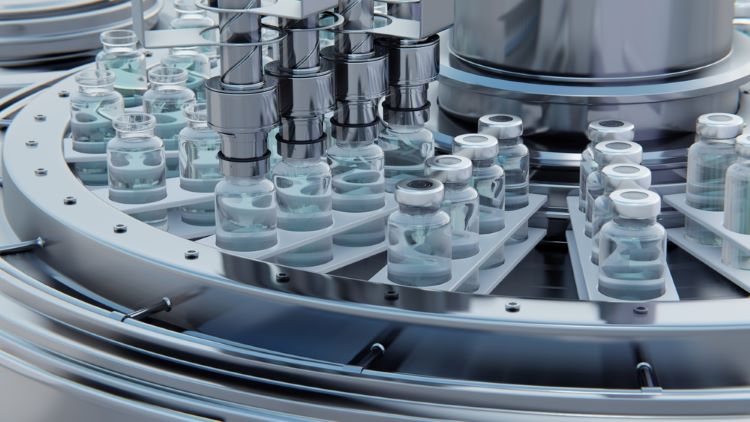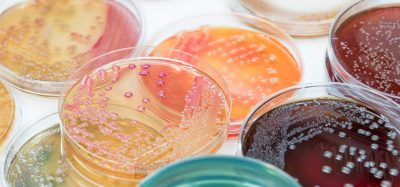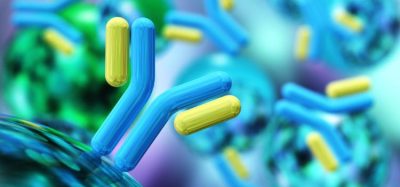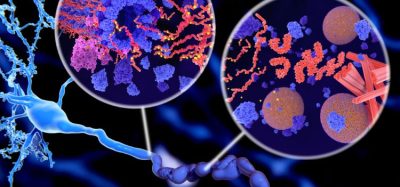Guaranteeing resilience in vaccine manufacturing
Posted: 28 September 2023 | Catherine Eckford (European Pharmaceutical Review), Nicolas Chornet (Moderna) | No comments yet
Nicolas Chornet, Senior Vice President of Resilience Operations at Moderna provides insight on how vaccine manufacturers can secure resilience in an environment of rapid technological advancement.


There has been a steady stream of developments in the vaccine manufacturing space throughout 2023. A notable milestone was Moderna’s announcement in April that it had, following finalisation of a ten-year strategic partnership with the UK Government, commenced construction of its mRNA vaccine manufacturing technology centre. Known as MITC, or the Moderna Innovation and Technology Centre, the facility is located in Harwell, Oxfordshire and is expected to become operational in 2025.
To learn more about the current landscape, challenges and most promising solutions for vaccine manufacturing, EPR interviewed Nicolas Chornet, Senior Vice President of Resilience Operations at Moderna.
Technology advancement
Chornet reflected that the pharmaceutical industry has seen changes in the past few years, not only in vaccines manufacturing, but more broadly in the biotech sector, too. Much of this transformation has been the increased speed of development “the speed of arriving [at a] vaccine for the infectious disease and the scale up and… also the manufacturing supply [has accelerated]” he explained.
For new technologies that have emerged in the last five years, “compared to some of the traditional methods, [technologies such as mRNA] are faster, sometimes more accurate also and definitely can be industrialised and manufactured within a shorter period of time. So speed of solution and speed to supply to offer solutions to the public, is much faster,” Chornet explained.
When questioned about which technologies he considered have potential to advance the sector, Chornet emphasised that not only is mRNA as a vaccine technology “a very promising and interesting platform [but that it is] disruptive and a game changer technology for vaccine [manufacturing] and overall biotech.”
there is a big digital revolution coming and biotech and pharmaceutical manufacturing, all the industries, will be impacted positively”
According to Chornet, while it is difficult to foresee the full extent of this transformation, “there is a big digital revolution coming and biotech and pharmaceutical manufacturing, all the industries, will be impacted positively.”
Within pharma, Chornet projected that the technology revolution will impact the industry “end to end… from ordering and controlling raw materials, to the actual manufacturing effort, the operational effort to smart logistics and distribution, and even down to the point of sale.”
Vaccine manufacturing supply chain
Chornet also reflected on the lessons learned from the COVID-19 pandemic and how future supply chain issues could be mitigated. He urged that as an industry “we need to diversify our supply chains. There is a need to have more redundancies and more backups and access to diverse sources of materials.
“As an industry, there is a lot of work being done right now in diversifying with all the raw materials and also calculating or managing the supply chain a bit differently within inventory levels for raw materials… traditionally [the pharmaceutical industry] always used to select few or a just a handful of suppliers.”
Chornet highlighted one of the biggest challenges in pharma currently: “everybody is looking for alternatives for supply chain. They are looking to diversify components usage; for example, how can we reduce components usage and retrofit our processes, so we are less dependent on external components.”
The COVID-19 pandemic “forced us to be leaner, to be more efficient from a manufacturing process, from a scientific review process, from an approval process, from the logistics, all the aspects end to end in the supply chain and [there] are areas that we are continuing now to expand on and to ensure that we keep in our supply chains, in our manufacturing,” he added.
Industry collaboration
Regarding collaboration within pharma, Chornet said: “I think there is opportunity and lessons learned around how we can leverage certain capacities between different companies and within the industry warehouse; for example, logistics.
now it is a good time… [to participate] and… to compare notes not just as an industry but with the government and with the agencies [and] also focus on continuous improvement”
“During the pandemic by necessity I think there has been quite a bit of inter-industry [collaboration], but also external industry help and collaboration and that has led to a rapid supply for the world and this was groundbreaking in many aspects and a good lesson to carry on and to continue.”
Regarding the best approach to collaboration within vaccine manufacturing, Chornet remarked that “now is a good time… [to participate] and to debrief and see what we can do as an industry.” It is important, he stated, “to compare notes” not just as an industry “but with the government and with the agencies [and] also focus on continuous improvement.”
Resilience in vaccine manufacturing
The interview also covered how innovative technologies could support vaccine manufacturing resilience. Chornet again mentioned the benefits of mRNA and how that throughout the biotech industry, there are new technologies that are “either helping mRNA or are completely different and also bringing different positive or new aspects to vaccine making.”
“AI, for example, is an area that is rapidly touching or impacting all industries in the world and definitely in biotech we can leverage a lot of the digital developments… to continue improving and optimising manufacturing.”
EPR also wanted to find out what Chornet considered was most important for supporting this resilience.
“If you do not have the good quality systems and mindset and controls in place… you cannot manufacture vaccines… all the improvements that we are seeing in analytics and development of methods and the quality control, I think are really accelerating our chemical control and our understanding of vaccines and the overall quality control.
“There is a tremendous amount of opportunities with the new digital systems and platforms that we are putting in place to continue strengthening our overall quality oversight of our processes and our vaccines,” he explained.
Staff training
Reflecting upon how staff training can help deliver resilience within the manufacturing sector, Chornet noted that during the COVID-19 pandemic, “one of the challenges in the rapid ramp up that we had to do… [were the] technical challenges of installing and building the sites really, or the manufacturing lines; but then it was a recruitment formation really and support of the production folks on all the manufacturing.”
Therefore, to ensure resilience in the vaccine manufacturing space, Chornet astutely expressed that there needs to be “the right mindset, the right curiosity and the right level of execution.”
About the interviewee
Nicolas Chornet

In his previous roles at Moderna, Nicolas was the Senior Vice President of International Manufacturing and the Site Head for Moderna’s Norwood clinical development manufacturing plant.
He joined Moderna in early 2019 following 11 years with Novartis. Nicolas obtained a degree in Chemical Engineering at the Colorado School of Mines.
Related topics
Artificial Intelligence, Big Pharma, Biopharmaceuticals, Drug Manufacturing, Industry Insight, Interviews, Manufacturing, Research & Development (R&D), Technology, Therapeutics








